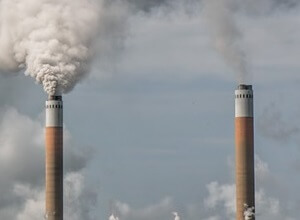 Drax and Double Drax
Drax and Double Drax
Drax, Europe’s largest coal fired power station and owner of Haven Power has won its acrimonious appeal against the government’s decision to renege on a deal to provide Drax with a £1.3bn investment to fund the conversion of its third coal fired generating unit to biomass.
Drax had already won two investments, one in the latest round of investment awards earlier this year however they lost out on a third which they claim they were led to believe was a shoo in.
Dorothy Thompson, Chief Executive of Drax, immediately threatened legal action and in a finding announced earlier this month Mrs Justice Andrews upheld Drax’s appeal.
Controversy surrounding the awards with off-shore wind, the more expensive counterpart of onshore wind, but which is significantly more politically acceptable to factions in the Conservative party, gaining at the expense of onshore wind. Also the awards were dominated by DONG Energy and other overseas operators at the expense of UK based businesses and cheaper technology.
Justice Andrews found that DECC should not have excluded the second Drax unit from the qualification process.
DECC responded by saying:
“We believe that we ran a fair and robust bidding process for renewable generators seeking early contracts for difference. We have been granted permission to appeal, and will now consider the decision carefully.”
With Drax spending £700m to convert 3 of its 6 generating units to biomass this judgement could prove critical in its success and market confidence for biomass as a sustainable fuel source.
The awards were controversial in themselves in that they were awarded prematurely for the Contracts for Differences scheme not due to commence until April 2015 and which will only take over the Renewables Obligation‘s role in supporting new plant from 2017. And with some commentators suggesting the early nature of the decision meant over-generous contracts being struck that were not at true market prices.
On balance then though the intention was and remains good, this implementation, decision making process and mechanism has been a distinct disappointment despite the expected 4.5GW of generation capacity and £12bn of investment it is expected to deliver by 2020.
The wrong technology, too expensive and too slow. An inauspicious start indeed.
